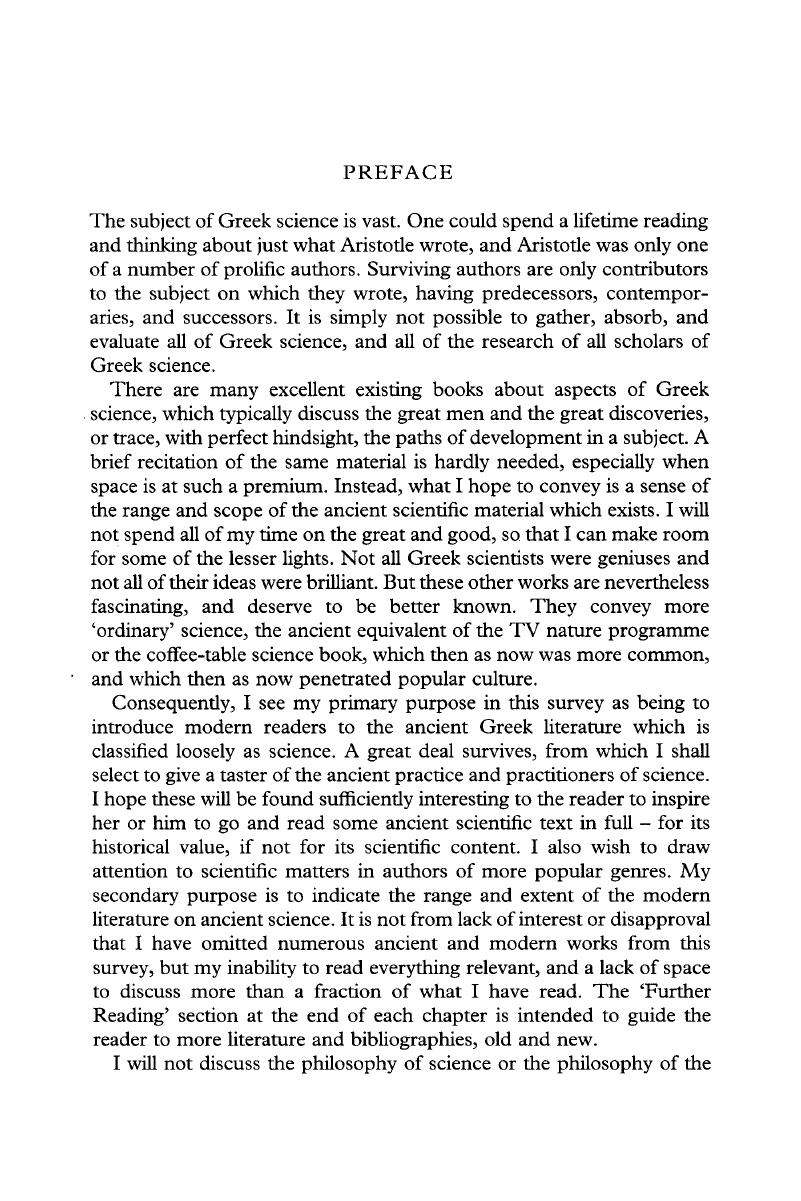Article contents
Preface
Published online by Cambridge University Press: 05 February 2016
Abstract

Information
- Type
- Other
- Information
- Copyright
- Copyright © The Classical Association 1999
References
1 On this see Pickstone 1995.
2 We might compare the 104 books by Galen which Hunayn ibn Ishaq translated into Syriac in the C9 A.D. (Benoît and Micheau 1995, 201) with the 30-odd available in English.
3 They include, for example, Arrian’s Periplous of the Euxine, Diophantos’ Arithmetic, and the Leiden and Stockholm alchemical texts.
4 Some editions suffer lacunae deliberately introduced in response to cultural factors prevailing when the work was published (often, a long time ago), such as Hort’s omission of a section of Theophrastos’ History of Plants 9.18, which mentions male genitalia, contraceptive drugs (for men as well as women), aphrodisiacs (including what is reputed to be an ancient equivalent of Viagra), and abortion.
5 Edited and translated by Thomas 1939–11. These volumes are excellent as far as they go; the problem is that they have just bits of different works. Consider a hypothetical analogy: what sort of understanding could one achieve of, say, Greek tragedy, if one depended on two volumes of Greek Tragic Works featuring ‘the best’ speeches in this or that play by Aiskhulos, Sophokles, and Euripides?
6 Better known by the title the Almagest, formed from the Arabic definite article al- and Greek megiste, and meaning ‘The Greatest’. It dominated astronomical thinking for over a millennium. It has been translated by Toomer and published by Duckworth 1984.
7 Known by the title Tetrabiblos, ‘Four Books’.
8 On the Natural Faculties, ed. and trans, by Brock, 1916. Galen: Selected Works by Singer, published by Oxford (World’s Classics Series) 1997, contains 15 treatises in translation, with a good introduction.
9 I’m thinking here particularly of Dioscorides, published by Gunther in 1933 but actually Goodyer’s translation from 1655; it is not easily recognizable as English. Scarborough and Nutton have done a recent edition, translation, and commentary of the Preface to Dioscorides’ Materia Medica in Trans, and Studies of the College of Physicians of Philadelphia n.s. 4 (1982), 187-227. The Preface consumes 3 printed pages; the commentary consumes 30. This gives some idea of the work which can be involved in the explication of an ancient scientific text. The whole text was done into German in 1902 by Berendes.
10 10 The full catalogue is on the Internet at http://www.hup.harvard.edu/Web_Loeb.catalog.am.html
- 2
- Cited by

